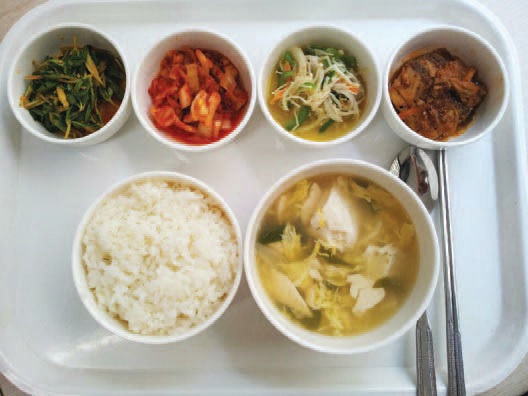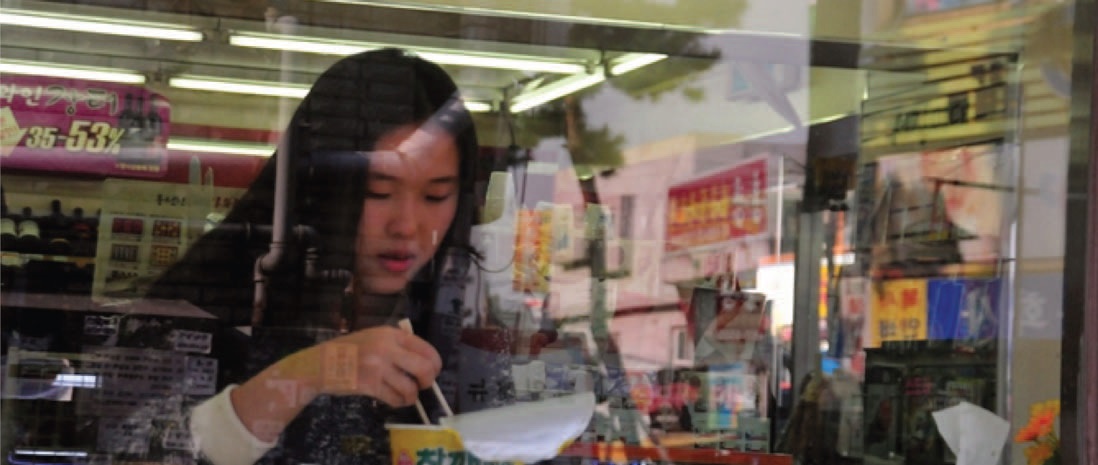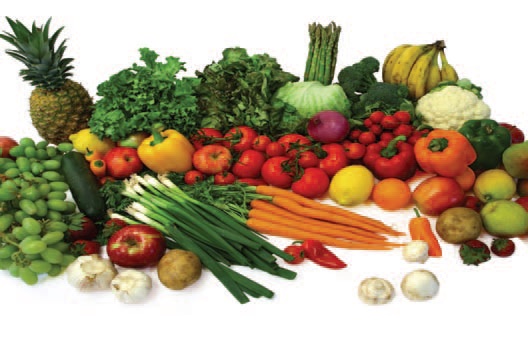Have you ever skipped a meal because you were studying? These days many college students focus so much on studying, it’s easy to see why many of them are skipping meals. This, however, is a bad habit and causes many health problems.
When exam period comes, college students often switch to irregular or insufficient meals. Some even binge eat due to excessive stress. Under these circumstances, the internal balance of the body may falter causing a multitude of health problems. The Dankook Herald (DKH) observed the average meal plan of Lee Da-hye (Trainee Reporter, The DKH). Ms. Lee kept a diary of her meals she had during the exam period.
First, we noticed it was rare for her to eat three solid meals a day during the exam period. For four days a week, she ate only one square meal a day. The rest of the day when she was hungry, she snacked constantly. Furthermore, her one meal a day was a high calorie meal from a buffet or eating ddukbogi, and she complicated further the matter by eating sugary cakes and snacks. Indeed, while she only sat down to eat one solid meal a day, she consumed as many calories as if she had eaten three unhealthy meals a day.
On the weekend, she was able to eat three square meals per day as her exams were over and she was relatively more relaxed. However, the problem lied in the fact that she still consumed high caloric foods, such as Korean table d'hote for lunch and Korean grilled pork for dinner.
 |
These kinds of habits are not restricted to our reporter, but rather represent the behavior of a majority of students. When they are bombarded with coursework or jobs, they lack time; and as a result, they skip meals and replace them with high calorie snacks. However, if such poor nutritional habits continue, they will not only increase body fat, they will also start to experience health issues such as indigestion, gastritis or enteritis.
Apart from the circumstances above, students also often go on food trips with their friends. This trend is especially popular as a result of ‘mukbang’. Even after their meals, they will indulge in desserts, bingsu or drink excessive coffee.
While these snacks might add up to the same amount of calories as a proper meal, they have very low nutritional value. Snacks are originally meant for consuming nutrients that are otherwise difficult to consume due to time restraints. However, in these cases, people are simply loading up on snacks to fill their stomach instead of opting for a nutritionally balanced meal. Furthermore, since they are consuming high calorie foods, they end up increasing their body fat putting their health at risk.
 Student having a quick meal in convenient store. (Google) Student having a quick meal in convenient store. (Google) |
Excessive snacking also influences your next meal, because people full with high calorie desserts or snacks eat less during their next proper meal. As a result, their nutritional balance is disturbed and they experience negative health consequences, such as vitamin and other nutritional deficiencies. As stated above, current college students have irregular meals or binge eat on excessive snacks mainly due to limited time. If this situation continues, they risk developing a multitude of health issues including sever matters such as heart disease, diabetes and even stomach cancers.
The DKH conducted a survey of Dankookians about their dietary lives. We learned that 54.4% of students skip meals more than 3 times a week. 52.2% of students said the reason they skip meals is because of lectures while 11.3% of students answered it was because of their studies and parttime jobs. Only a few students answered that they skip meals because of money, homework and not feeling hungry during meal time. As you can see from the above, more than half the students are skipping meals more than 3 times a week for many different reasons and every student skips a meal at least once a week.
 |
The DKH then asked, if students skipped a meal, what they did to replace it and the result was that 50% said they eat snacks, 18.1% ate latenight meals and 31.8% said they simply did not eat. Also 63.6% of students eat out, 6.8% eat delivery food, and 4.5% eat a lunch box as their meal. Interestingly enough, 61.3% of students answered they suffered some kind of health impact from skipping meals.
To learn more about these food choices, the DKH interviewed Kim Myeong-ok (Cook, student dormitory cafeteria). The DKH showed her the results of the online survey and asked her what she thought. She agreed the eating habits of Dankookians are very poor. She strongly emphasized that skipping a meal so many times a week is a bad idea. She said this can result in a nutrition deficiency impacting your health and well-being. The DKH asked how Dankookians could recover the nutrients they lose when skipping meals due to time constraints. She explained the effectiveness of nut products and suggested that students choose a product depending on their goals and objectives.
First, the best and worst nuts for losing weight. The best nuts to lose weight are almonds, cashews and pistachios. These nuts have the least amount of calories as compared to other nuts. They contain only 160kcal for 30g which is very low. If you cook these nuts with oil, however, they are the worst choice. Due to the high temperature during cooking, the nutrients are destroyed and only fat-forming elements will be left in the food. She said you are better to have them raw or roasted just a little bit. The worst nuts for weight loss are macadamia nuts and pecans. These nuts have not only the least protein, but also the highest fats. Although they have 200kcal in 30g, if you manage to eat them, they are better for your health than other snacks that are empty of nutritional value.
Second place goes to walnuts and peanuts. Walnuts are good for students because they are a balanced substance with various nutrients such as protein and magnesium. Walnuts are especially good cause they contain omega-3 fatty acids that help to enhance memory, learning capabilities and focus. Peanuts are especially good for Koreans who eat salty foods because they contain a lot of potassium, which helps counter the effects of sodium.
The DKH asked about the effectiveness of energy bars which are gaining popularity with busy students. She answered, “Of course they are much better than skipping a meal without eating anything. However, no matter how well made the energy bar is with balanced nutrients, it can’t replace the total value of nutrients that come from a well-balanced meal. I know how busy students are these days because I see them leave immediately after they finish a meal, but I hope to see more students coming to the cafeteria to have a well-balanced meal.”
Having a well balanced meal is important but these days the reality for university students, is that it is hard to take care of their meals. Students are busy during their university lives, so nutritional snacks are very helpful, and by making the right snack choices, students can minimize their nutritional deficiencies and enjoy a healthier life.
이다혜, 오수연, 박세훈 dkherald@hotmail.com

![[Campus Magnifier] Let's Surf the Library!](/news/photo/202404/12496_1765_4143.jpg) [Campus Magnifier] Let's Surf the Library!
[Campus Magnifier] Let's Surf the Library!
![[Campus Magnifier] Let's Surf the Library!](/news/thumbnail/202404/12496_1765_4143_v150.jpg)





